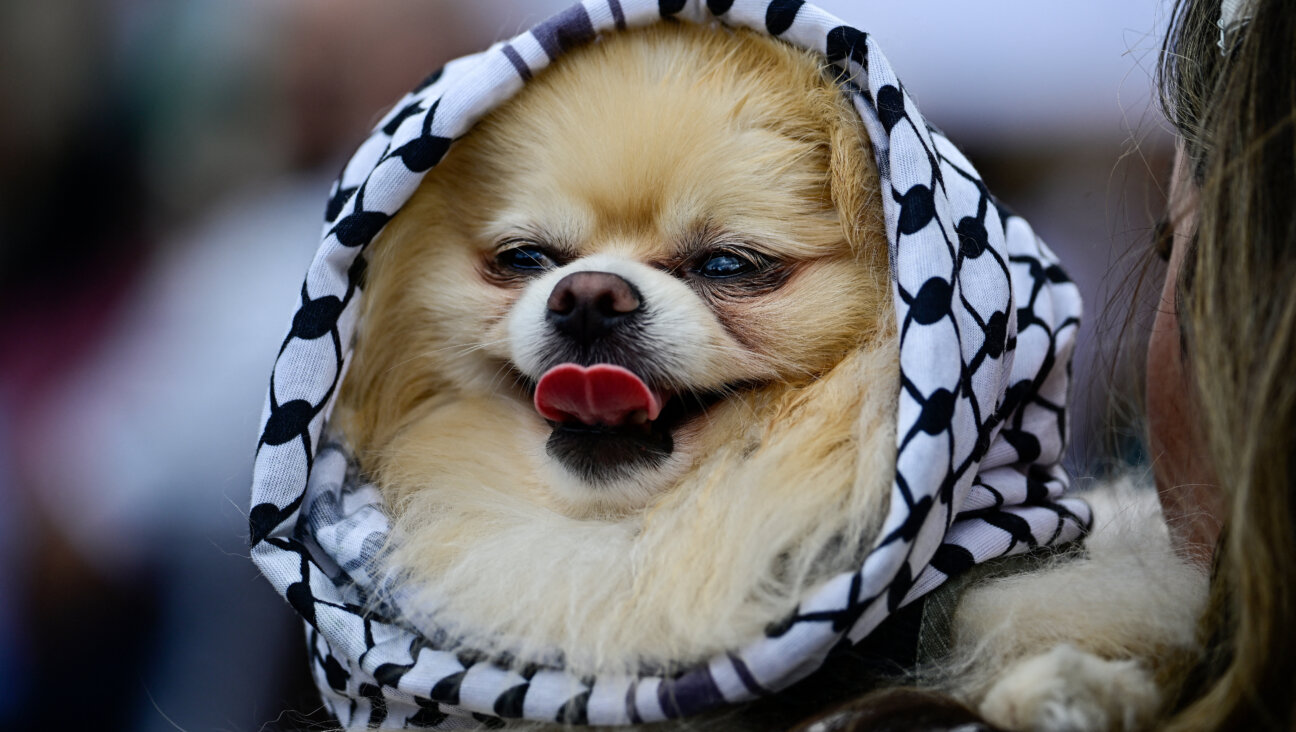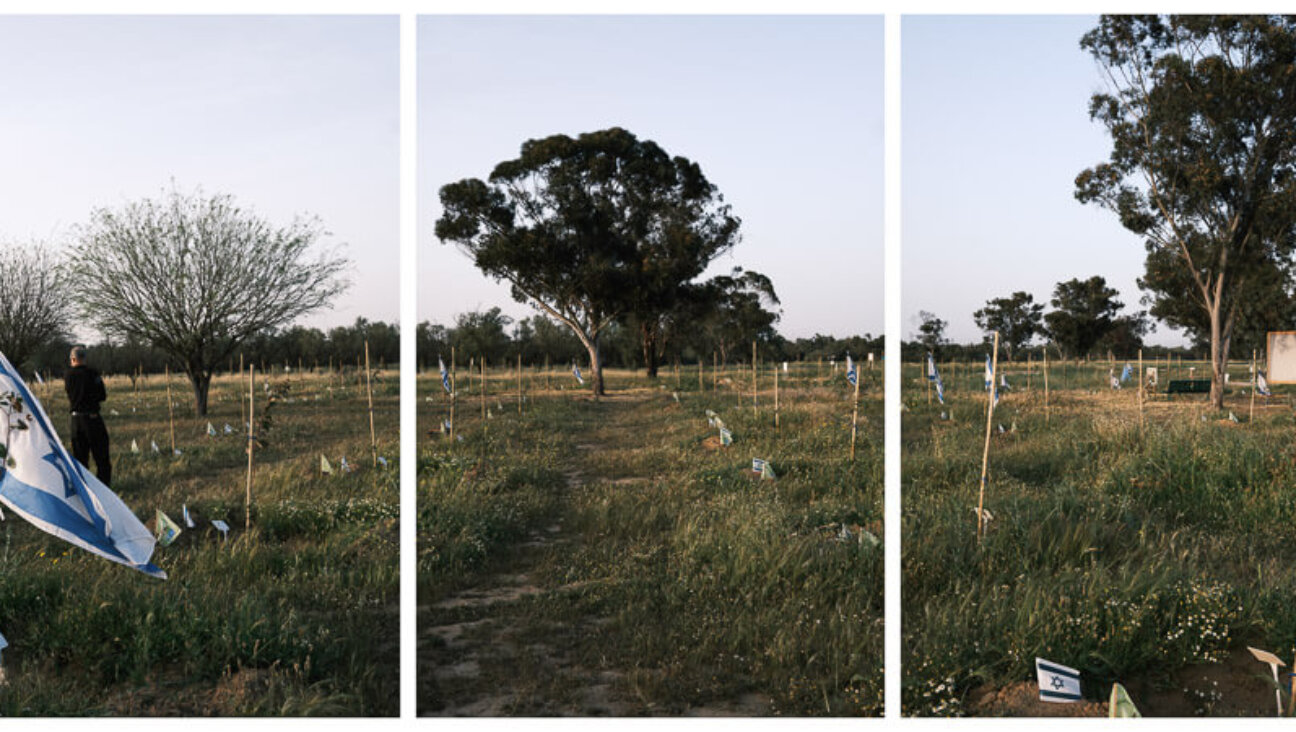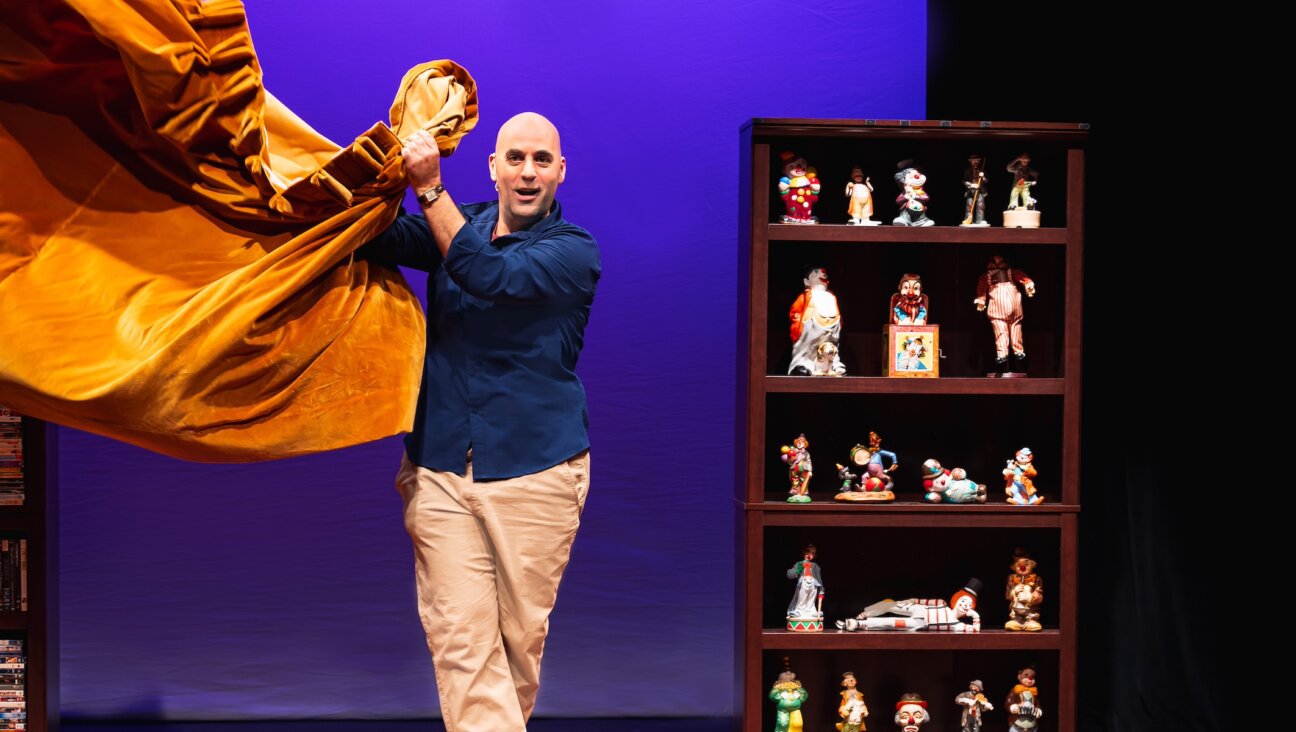Pleasant, Pleasanter and Pleasanter-er

Image by new line cinema

Dumb and Dumber-er: Philologos hunts for what determines the usage of the comparative form of adjectives. Image by new line cinema
Rabbi Richard Hammerman of Caldwell, N.J., writes about my column of May 4, in which I said it was “pleasanter” to contemplate the origins of the expression “finger-lickin’ good” than it was to contemplate an Iranian nuclear bomb:
“I always enjoy your columns and learn something new and often useful from them. But ‘pleasanter,’ not ‘more pleasant than’? Perhaps you were caught up in the slangy context of the article.”
Was it wrong of me to say “pleasanter”? Rabbi Hammerman’s question got me thinking about an issue I had never thought about before. Is there any rule that tells us when the comparative form of an adjective is made by adding “-er” and when by being preceded by “more”? If there is, I’ve never come across it in any book of English grammar or usage. And yet every language has many rules that aren’t conspicuous enough for the grammar books to mention or for native speakers even to be aware of. A high percentage of the sentences we utter are partly formed by such unconscious rules, in the absence of which we would be forced to make constant decisions that would slow down our speech considerably. What, then, is the rule governing “pleasanter” verses “more pleasant”?
In an attempt to find it, I began by making an associational list of comparative adjectives. Quicker. Slower. More methodical. More patient. More willing. Readier. Sooner. Later. Darker. Brighter. Sunnier. Cloudier. Sadder. More depressed. More melancholy. More cheerful. Happier. Funnier. Gladder. More content. Wiser. Smarter. Shrewder. More cunning. Craftier. More skillful. More experienced, etc., etc.
Did a rule suggest itself from these examples? Indeed, it did. It went: Comparative adjectives are formed with -er from all one-syllable words, such as “quick,” “slow,” “soon” and “late,” or from words of two syllables ending in “y,” such as “sunny,” “cloudy,” “happy” and “merry.” In all other cases, they are formed by putting “more” in front of them. Such a rule explains why we don’t say “He’s more quick than I am,” “That joke is more funny,” “She’s become depresseder over the years” or “That’s the methodicaler approach.” We automatically avoid such usages without having to think about them.
Since “pleasant” isn’t a one-syllable word, or a two-syllable word ending in “y,” Rabbi Hammerman would appear to be right: I should have said “more pleasant” rather than “pleasanter.” But why, then, do I rebel against this conclusion and still feel that “pleasanter,” while not excluding the possibility of “more pleasant,” is perfectly good English? Can it be that the rule I have formulated is inexact? Are there more-than-one-syllable adjectives not ending in “y” that take “-er,” too?
Actually, there are. Looking for such cases, I thought of a dozen or more. Although it wouldn’t be wrong to say, “There’s a more simple solution to that problem,” one would more probably say, “There’s a simpler solution,” even though “simple,” like “pleasant,” is a two-syllable word not ending in “y.” Similarly, “We live on a quieter street than they do” feels more natural than, “We live on a more quiet street than they do.” And while I couldn’t think of a single three-or-more-syllable adjective that can take “-er,” there are some two-syllable ones that seem able to take “-er” and “more” equally well. “You’re handsomer than he is” and “You’re more handsome than he is” both sound about as good to me; so do “stupider” and “more stupid,” “cleverer” and “more clever,” “subtler” and “more subtle,” “humbler” and “more humble,” “gentler” and “more gentle,” “nimbler” and “more nimble,” “mellower” and “more mellow,” “shallower” and “more shallow,” “hollower” and “more hollow,” and still others. To my ear, “pleasant” is one of these.
But what’s the rule that tells us which two-syllable adjectives not ending in “y” can take “-er” and which can’t? As hard as I tried, I couldn’t come up with one. It’s true that certain sound patterns seem more likely to produce such words. “Simple,” “humble,” “subtle,” and “gentle” all have the same ending, as do “mellow,” “shallow” and “hollow” — but “quiet,” “handsome,” “stupid,” “clever” and “pleasant” do not. If we say “quieter,” why can’t we say “silenter”? And if we can say “nimbler” instead of “more nimble,” why can’t we say (we never would) “agiler” instead of “more agile,” or (we wouldn’t either) “Farmer Brown’s land is fallower than Farmer Jones’s,” just as we say, “The water at this end of the lake is shallower than at that end?” Perhaps one of you can figure it out. I haven’t been able to.
Can it be that there simply is no rule for the comparative form of two-syllable adjectives not ending in “y,” but simply a relatively small number of such words that can take “-er,” each of which has to be learned as a case in itself from the experience of hearing other people use it? And is the only reason that “pleasanter” sounds right to me and not to Rabbi Hammerman that I have heard others use it and he hasn’t? Or is there some other factor at work here that I can’t put my finger on? If you have any thoughts about it, let me know.
Questions for Philologos can be sent to [email protected]
The Forward is free to read, but it isn’t free to produce

I hope you appreciated this article. Before you go, I’d like to ask you to please support the Forward.
Now more than ever, American Jews need independent news they can trust, with reporting driven by truth, not ideology. We serve you, not any ideological agenda.
At a time when other newsrooms are closing or cutting back, the Forward has removed its paywall and invested additional resources to report on the ground from Israel and around the U.S. on the impact of the war, rising antisemitism and polarized discourse.
This is a great time to support independent Jewish journalism you rely on. Make a gift today!
— Rachel Fishman Feddersen, Publisher and CEO
Support our mission to tell the Jewish story fully and fairly.
Most Popular
- 1

Culture Cardinals are Catholic, not Jewish — so why do they all wear yarmulkes?
- 2

Fast Forward Ye debuts ‘Heil Hitler’ music video that includes a sample of a Hitler speech
- 3

News School Israel trip turns ‘terrifying’ for LA students attacked by Israeli teens
- 4

Fast Forward Student suspended for ‘F— the Jews’ video defends himself on antisemitic podcast
In Case You Missed It
-

Yiddish קאָנצערט לכּבֿוד דעם ייִדישן שרײַבער און רעדאַקטאָר באָריס סאַנדלערConcert honoring Yiddish writer and editor Boris Sandler
דער בעל־שׂימחה האָט יאָרן לאַנג געדינט ווי דער רעדאַקטאָר פֿונעם ייִדישן פֿאָרווערטס.
-

Fast Forward Trump’s new pick for surgeon general blames the Nazis for pesticides on our food
-

Fast Forward Jewish feud over Trump escalates with open letter in The New York Times
-

Fast Forward First American pope, Leo XIV, studied under a leader in Jewish-Catholic relations
-
Shop the Forward Store
100% of profits support our journalism
Republish This Story
Please read before republishing
We’re happy to make this story available to republish for free, unless it originated with JTA, Haaretz or another publication (as indicated on the article) and as long as you follow our guidelines.
You must comply with the following:
- Credit the Forward
- Retain our pixel
- Preserve our canonical link in Google search
- Add a noindex tag in Google search
See our full guidelines for more information, and this guide for detail about canonical URLs.
To republish, copy the HTML by clicking on the yellow button to the right; it includes our tracking pixel, all paragraph styles and hyperlinks, the author byline and credit to the Forward. It does not include images; to avoid copyright violations, you must add them manually, following our guidelines. Please email us at [email protected], subject line “republish,” with any questions or to let us know what stories you’re picking up.















